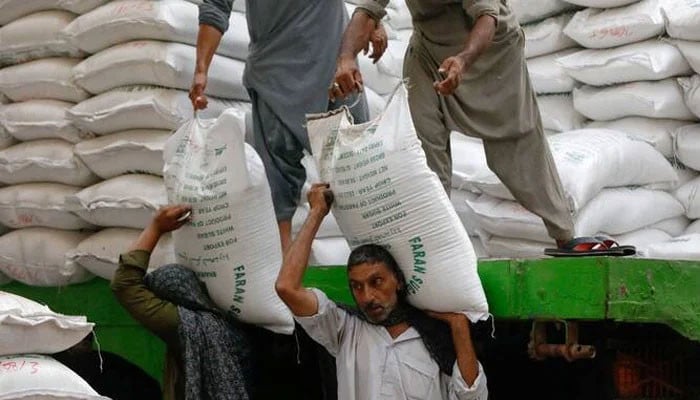ISLAMABAD: The government has finalised a deal to import 200,000 tons of sugar to curb soaring prices, brushing aside the International Monetary Fund (IMF) warnings over subsidies and refusing to disclose who won the tender when it was issued, or at what cost taxpayers will foot the bill.
The first shipment is due to arrive in early September, a Ministry of National Food Security spokesperson said in a statement here Saturday. However, it did not disclose the details of landing costs and subsidy amount.
An official said the imports were ordered by a high-powered committee headed by Deputy Prime Minister Ishaq Dar. The food ministry distanced itself from the decision, while the Prime Minister’s Office claimed the import will “balance prices and provide relief to the public” — but offered no details on tender terms or the size of an IMF-opposed subsidy, while an official told The News it could be over 30 rupees a kilogram subsidy. The hush-hush handling has raised transparency alarms in an economy under strict IMF oversight, where subsidies have long been criticized for draining public finances. The IMF rejected Islamabad’s justification of a “food emergency” to push the deal through, warning that additional subsidies could derail Pakistan’s $7 billion loan program. Notably, on Thursday, the government took control of 1.9 million metric tons of sugar from private mills and placed 18 mill owners on the Exit Control List for alleged hoarding. The Pakistan Sugar Mills Association denied any seizure, blaming “divergent administrative measures” for supply glitches, while Food Security Minister Rana Tanveer Hussain accused hoarders of driving prices to Rs190/kg and vowed tough action. Pakistan exported 757,597 metric tons of sugar worth $406.9 million between August 2024 and January 2025. The food ministry said that the decision was made on the back of surplus stocks. At the same time, it said that climate-driven crop losses cut output to 5.8 million tons against 6.3 million tons demand, forcing an abrupt export halt in January. The millers of Sindh and Punjab had in their internal meeting boycotted price pacts with the government.
